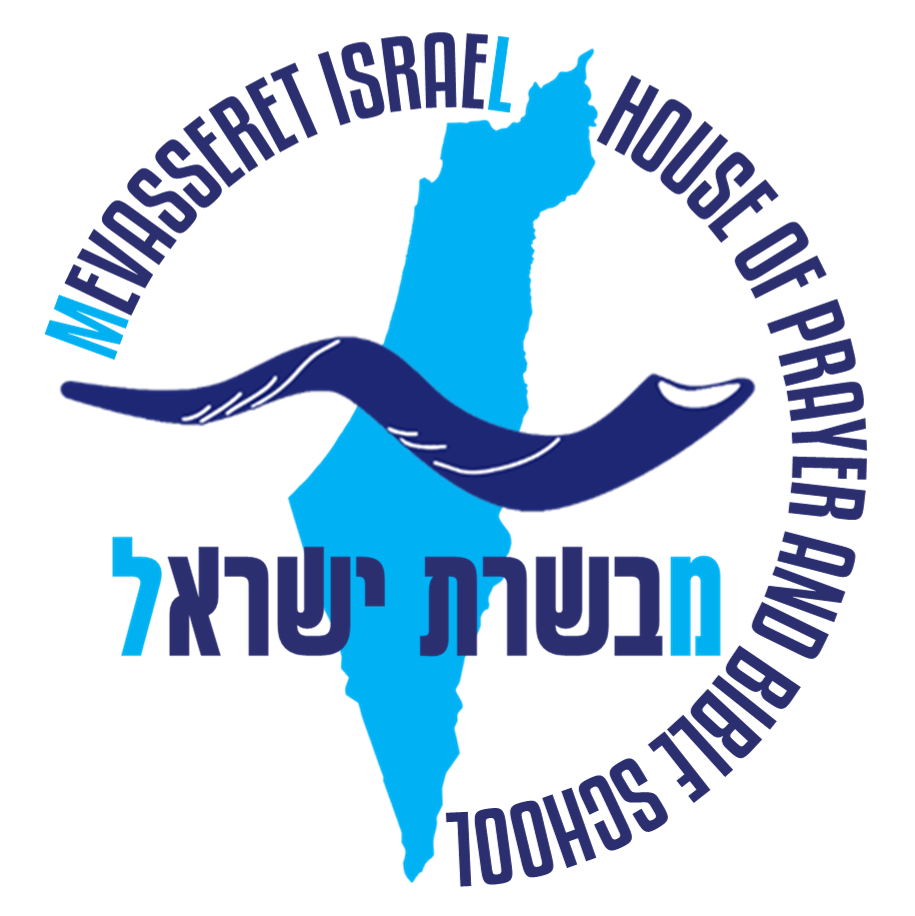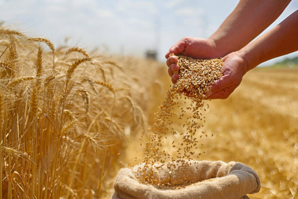The Barley and the Counting of the Omer – A Time of Expectation for Something Greater!
The Biblical Calendar and the Holy Convocations involve the agricultural calendar of the land of Israel.
שעורה אביב – Seorah Aviv
The period we are in, between the Feast of Pesach (Passover) and the Feast of Shavuot (Weeks/Pentecost) is the period of the barley (שעורה – seora) harvest.
In Exodus we read that at the time of the plagues in Egypt, the barley was already in the head, that is, it was ready to be harvested.
Exodus 9:31
‘Now the flax and the barley were struck, for the barley was in the head and the flax was in bud. ‘
The Hebrew word for “in the head” is aviv, the same word used to refer to the season of spring and the first month of the year:
Deuteronomy 16:1
‘“Observe the month of Aviv, and keep the Pesach to the Lord your God, for in the month of Aviv the Lord your God brought you out of Egypt by night. ‘
The Secret of Barley
We know that barley is a less valued grain than wheat. Barley bread has less gluten and does not rise as much as wheat bread. Barley was and still is provided as food for animals:
1 Kings 4:28
‘They also brought barley and straw to the proper place, for the horses and steeds, each man according to his charge.’
Barley bread is considered the “bread of the poor”, however, in the Bible, we see that God uses barley bread several times to perform wonders.
Gideon is represented as “the barley bread” who was chosen by God to defeat the Midianites.
Judges 7:13-15
‘And when Gideon had come, there was a man telling a dream to his companion. He said, “I have had a dream: To my surprise, a loaf of barley bread tumbled into the camp of Midian; it came to a tent and struck it so that it fell and overturned, and the tent collapsed.” Then his companion answered and said, “This is nothing else but the sword of Gideon the son of Joash, a man of Israel! Into his hand God has delivered Midian and the whole camp.” And so it was, when Gideon heard the telling of the dream and its interpretation, that he worshiped. He returned to the camp of Israel, and said, “Arise, for the Lord has delivered the camp of Midian into your hand.” ‘
In the previous chapter of Judges, we see that Gideon was considered by himself the bread of the poor and this caused him fear and insecurity, but it was exactly this barley bread that God wanted to use:
Judges 6.15-16
‘So he said to Him, “O my Lord, how can I save Israel? Indeed my clan is the weakest in Manasseh, and I am the least in my father’s house.” And the Lord said to him, “Surely I will be with you, and you shall defeat the Midianites as one man.”’
In the time of Elisha, we see again the mention of barley bread, in a tremendous episode:
2 Kings 4:42-44
‘Then a man came from Baal Shalisha, and brought the man of God bread of the firstfruits, twenty loaves of barley bread, and newly ripened grain in his knapsack. And he said, “Give it to the people, that they may eat.” ”But his servant said, “What? Shall I set this before one hundred men?” He said again, “Give it to the people, that they may eat; for thus says the Lord : ‘They shall eat and have some left over.’ ” So he set it before them; and they ate and had some left over, according to the word of the Lord .’
This is the first multiplication of bread that appears in the Bible and God makes it clear that it was through the first fruits of barley!
The episode is repeated in Yeshua’s time, when barley loaves not only feed a hundred, but five thousand men:
John 6:9-13
‘“There is a lad here who has five barley loaves and two small fish, but what are they among so many?” Then Yeshua said, “Make the people sit down.” Now there was much grass in the place. So the men sat down, in number about five thousand. And Yeshua took the loaves, and when He had given thanks He distributed them to the disciples, and the disciples to those sitting down; and likewise of the fish, as much as they wanted. So when they were filled, He said to His disciples, “Gather up the fragments that remain, so that nothing is lost.” Therefore they gathered them up, and filled twelve baskets with the fragments of the five barley loaves which were left over by those who had eaten. ‘
The season in which we are living, the season of barley, reveals to us how much God can use those who do not represent much to the world, but are powerful instruments in God’s hands to win battles and also to feed multitudes!
1 Corinthians 1:26-29
‘For you see your calling, brethren, that not many wise according to the flesh, not many mighty, not many noble, are called. But God has chosen the foolish things of the world to put to shame the wise, and God has chosen the weak things of the world to put to shame the things which are mighty; and the base things of the world and the things which are despised God has chosen, and the things which are not, to bring to nothing the things that are, that no flesh should glory in His presence. ‘
עומר ראשית – Omer Reshit
The first mention of the word omer in the Tanach (First Testament) is in Exodus 16:16 when God sent the manna in the wilderness:
‘This is the thing which the Lord has commanded: ‘Let every man gather it according to each one’s need, one omer for each person, according to the number of persons; let every man take for those who are in his tent.’ ”’
In Leviticus 23:10, right after we read about the Pesach, the term omer appears again:
‘“Speak to the children of Israel, and say to them: ‘When you come into the land which I give to you, and reap its harvest, then you shall bring a sheaf of the firstfruits (et omer reshit) of your harvest to the priest. ‘
The omer is a sheaf, or a dry measure of grains, of approximately 2 liters.
Leviticus 23:11
‘He shall wave the sheaf (omer) before the Lord , to be accepted on your behalf; on the day after the Sabbath the priest shall wave it. ‘
According to Leviticus 23:10 and 11, Adonai commanded us to bring a measure of grain, from the firstfruits of the harvest to the priest at the Temple. This firstfruit offering was probably barley, as we read in Exodus chapter 9. The barley was to be waven by the priest on the day after the Shabat of Pesach. The community of Israel understands that this date is Aviv 16, that is, the day after the Holy Convocation (Shabbat) of the celebration of Pesach (Aviv 15).
The barley omer was waven on our behalf. In the same way that Yeshua on the 14th of Aviv was our korban, our Passover sacrifice, He was also our Omer Reshit (sheaf of the firstfruits of the barley), given on our behalf, so that we may be accepted:
1 Corinthians 15:20
‘But now Messiah is risen from the dead, and has become the firstfruits of those who have fallen asleep. ‘
We too will be resurrected as God’s harvest, but Yeshua was the reshit, the head (rosh), the firstfruits of the barley in the hands of the Father.
ספירת העומר – Sfirat haOmer
The term sfirat haomer (counting of the omer) is used to refer to the counting of the days between Pesach and Shavuot (Weeks or Pentecost):
Leviticus 23:15-16
‘‘And you shall count for yourselves from the day after the Sabbath, from the day that you brought the sheaf of the wave offering: seven Sabbaths shall be completed. Count fifty days to the day after the seventh Sabbath; then you shall offer a new grain offering to the Lord . ‘
Between Pesach and Shavuot, there is a period of counting, that is, an expectation for something that will happen. God is calling us to look forward to a new harvest. We know that at Shavuot time the wheat harvest is carried out:
Exodus 34:22
‘“And you shall observe the Feast of Weeks, (Shavuot) of the firstfruits of wheat harvest, and the Feast of Ingathering (Sukkot) at the year’s end.’
Expectation for an Appointment
In addition to the expectation for the physical harvest, there was an expectation on the part of God that was reported to Moses at the burning bush:
Exodus 3:12
‘So He said, “I will certainly be with you. And this shall be a sign to you that I have sent you: When you have brought the people out of Egypt, you shall serve God on this mountain (Chorev or Sinai).
Exodus 5:1
‘Afterward Moses and Aaron went in and told Pharaoh, “Thus says the Lord God of Israel: ‘Let My people go, that they may hold a feast to Me in the wilderness.’ ”’
Our God was waiting for a new moed, a new appointed time, scheduled by Him to meet with us!
In our study on Shavuot we will talk more about this.
Yeshua, after being resurrected, during the period of sfirat haomer, appeared to his disciples with his glorified body, for 40 days! Before ascending to the Father, He also revealed expectation to His disciples:
Luke 24:49
‘Behold, I send the Promise of My Father upon you; but tarry in the city of Jerusalem until you are endued with power from on high.”’
They should continue counting the days, remaining in Jerusalem, because something would happen: they would be clothed with power from on high!
Acts 1. 3 -5
‘to whom He also presented Himself alive after His suffering by many infallible proofs, being seen by them during forty days and speaking of the things pertaining to the kingdom of God. And being assembled together with them, He commanded them not to depart from Jerusalem, but to wait for the Promise of the Father, “which,” He said, “you have heard from Me; for John truly baptized with water, but you shall be baptized with the Holy Spirit not many days from now.” ‘
This period of counting the days until Shavuot must create in us an expectation, just as it was created in the heart of the Father Himself, for an appointment, a feast, an empowerment, a harvest!
We also know that Zionist events related to the land of Israel took place at this time of counting the omer. The most important are Yom HAtzmaut and Yom Yerushalaim – Independence Day of the State of Israel and Jerusalem Day, which this year will fall on May 1st and May 26th respectively).
These events represent biblical prophecies being fulfilled; they are true miracles!
God willing, we will talk about these dates later.
Let us be waiting for miracles in these days of counting the omer!
In the sublime love of Yeshua haMashiach.
Yoshua e Shoshana – Mevasseret Israel
Prayer Alerts and Articles




